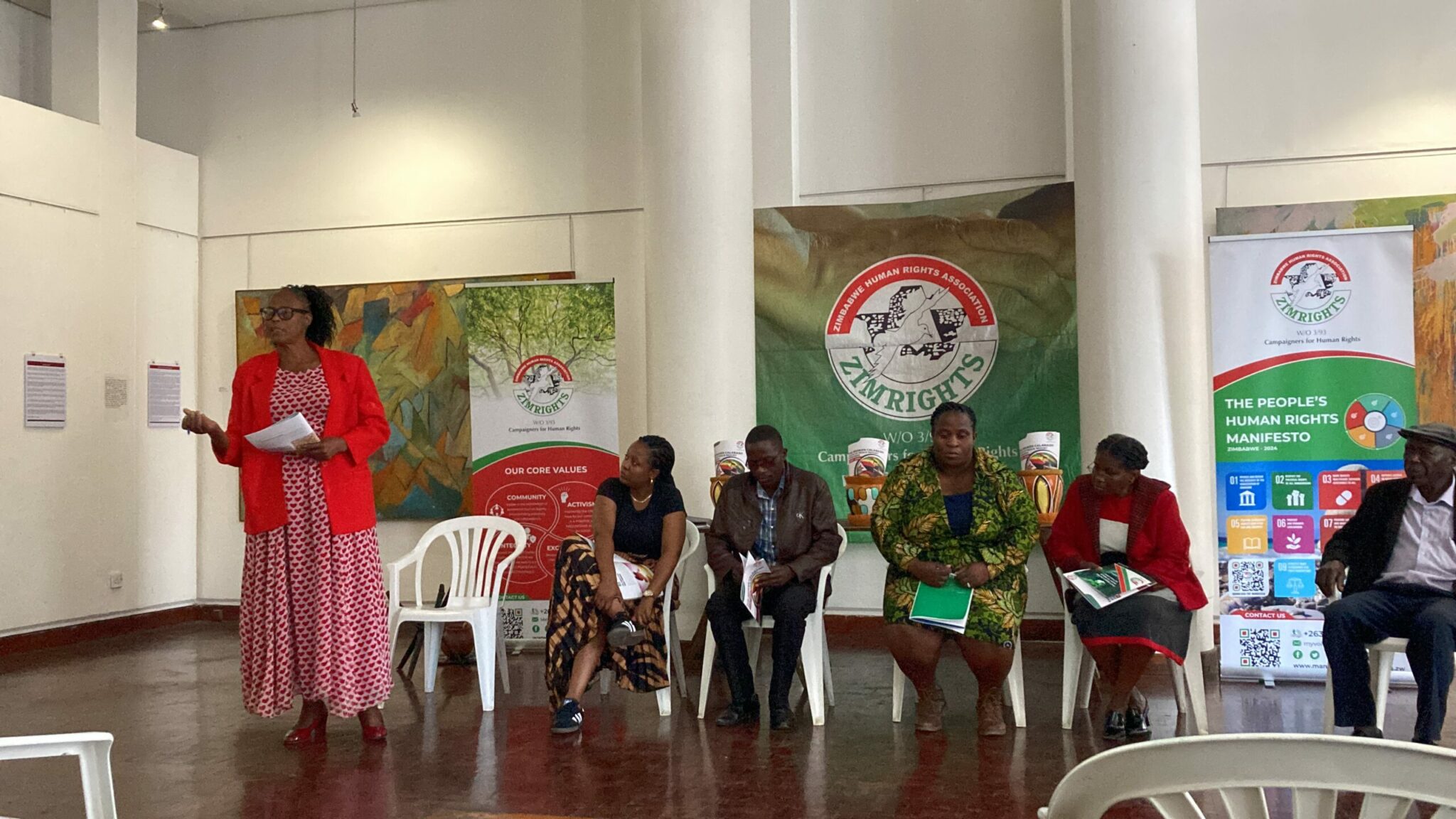The Zimbabwe Human Rights Association (ZimRights) has launched a State of Peace report titled “The Broken Calabash,” which aims to provide a comprehensive analysis of the multifaceted dynamics influencing peace in the country.
During the launch held at the National Art Gallery in Bulawayo on Tuesday, ZimRights Community Engagement Specialist for the Southern Region, Thubelihle Ncube, said the report’s objective is to amplify the voices of citizens through a grassroots approach. This initiative seeks to shed light on the various challenges impacting the lives of individuals.
Running under the organisation’s right to peace campaign, the report captures the state of peace in Zimbabwe from 2023 to 2024.
Ncube noted that the findings are intended to inform and guide critical decision-making processes as the nation navigates the complex interplay of political, economic, and social factors affecting peace.
The report identifies several institutional threats to peace in 2023, as highlighted by surveyed citizens. These threats include political parties, the Zimbabwe Republic Police, the Zimbabwe Election Commission, and the Forever Associates of Zimbabwe.
Ncube further explained that ZimRights has been actively working with communities in Bulawayo and Matabeleland South, empowering them to advocate for peace and accountability. The responses to these efforts vary depending on the area.
To facilitate peacebuilding, they established Peace Action Committees (PAC) in the regions they serve, training members to lead dialogues on conflict resolution and promote peace.
“The responses from communities regarding peacebuilding often vary, influenced by seasons and the historical context of each community,” she explained. “In Matabeleland, where the Gukurahundi atrocities deeply affected the population, the definition of peace and the demand for accountability from perpetrators is vastly different. For them, discussions about peace can only commence once these issues are addressed, as many of their current challenges stem from that history. In urban communities, however, peace issues primarily revolve around service delivery and politically induced conflicts, which leads to a different response.”
Gracious Ndlovu, a PAC representative from Plumtree, emphasised the community’s lingering wounds from Gukurahundi and the need for a sincere approach to address these issues.
“We understand that chiefs have been appointed to lead peace discussions, but they must fully grasp the pain the community feels. Our parents are victims of Gukurahundi; we are victims. We are broken. Genuine resolution can only occur if the chiefs truly appreciate our brokenness,” she stated.
Maria Lunga, PAC Chairperson from Cowdray Park, shared how the committees have effectively resolved conflicts within their community.
“We face numerous peace-related issues, particularly concerning inheritance. Many children feel entitled to their parents’ homes, leading to disputes after their passing, with some even chasing siblings away. However, through these peace initiatives, we’ve managed to address these conflicts, encouraging parents to write wills to protect their children,” she explained.
Dzikamai Bere, Director of ZimRights, expressed gratitude to the various stakeholders involved in compiling the report and commended the commitment shown by the Peace Action Committees.
“We had fruitful discussions with the stakeholders present at the launch. The community is determined to mend the broken calabash of peace. They have highlighted the importance of truth-telling as a vital avenue for achieving peace in the country,” he said.

